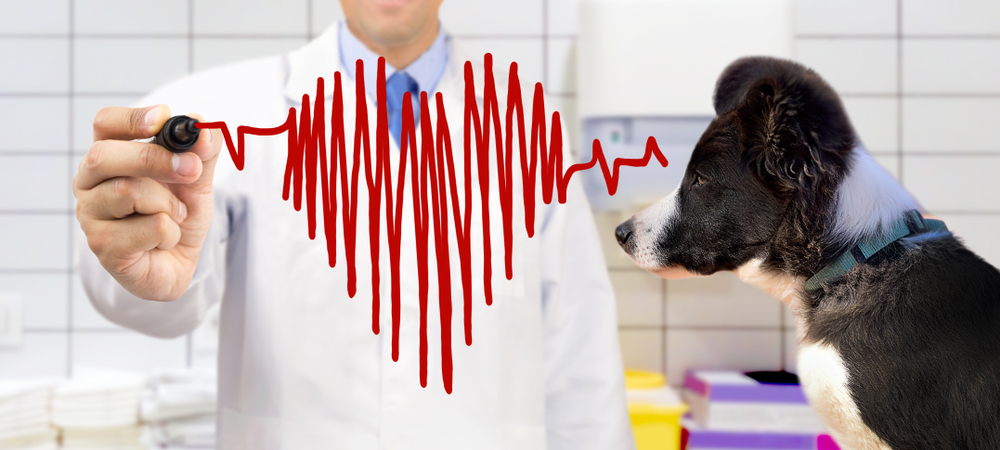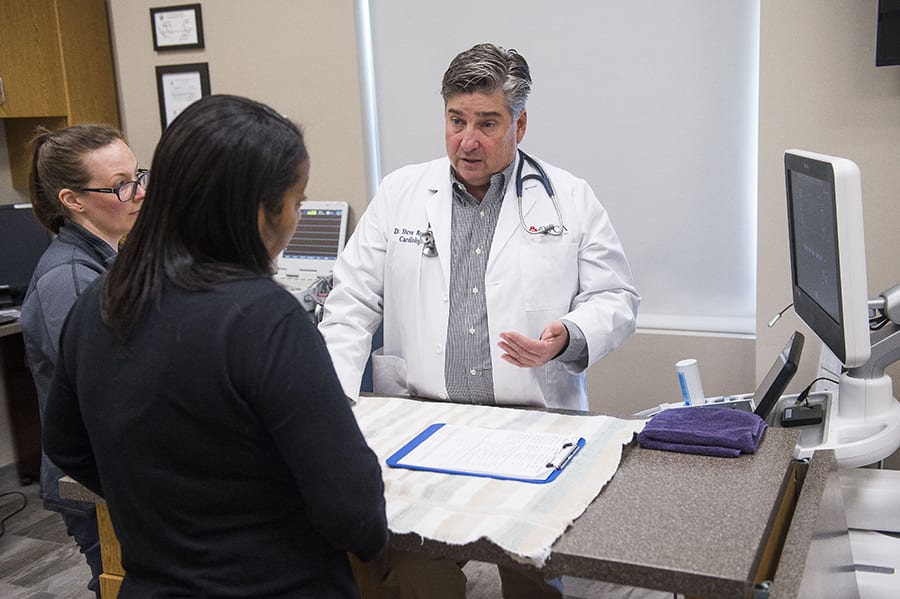Choosing the Right Cancer Veterinary Near Me: A Pet Owner’s Checklist}
Discovering the Vital Services Offered by a Vet Cardiologist: Recognizing Ultrasound and CT Check Methods
Vet cardiologists play an important role in the wellness of pets by diagnosing and treating different heart conditions. They utilize innovative imaging techniques, such as heart ultrasound and CT scans, to give accurate assessments. Each approach has its unique benefits and applications. Comprehending these techniques is important for family pet owners seeking the very best look after their companions. What aspects should family pet owners consider when picking between these analysis tools?

The Role of Veterinary Cardiologists in Family Pet Health Care
Veterinary cardiologists play an important role in the healthcare of animals, concentrating particularly on detecting and dealing with heart-related conditions. They possess specialized training that allows them to analyze intricate analysis examinations and recognize different cardio problems. These specialists make use of sophisticated methods, such as echocardiography and electrocardiography, to evaluate heart function and structure accurately.Veterinary cardiologists also create customized therapy strategies that may consist of drugs, way of living adjustments, and, in many cases, medical interventions. Their know-how encompasses informing pet owners regarding heart health and wellness, highlighting the significance of regular exams and very early discovery of possible issues. Partnership with general veterinarians is vital, as it ensures thorough care for pet dogs with presumed heart problems. By offering specialized services, veterinary cardiologists considerably enhance the lifestyle for animals and offer assurance for their owners, enhancing the value of heart health in total family pet wellness.
Common Heart Problems in Pet Dogs
Common cardiac concerns in pet dogs can significantly impact their wellness and quality of life. Heart whisperings, different kinds of cardiomyopathy, and congenital heart defects are amongst one of the most prevalent conditions that vets come across. Cancer Veterinary Near Me. Recognizing these concerns is vital for pet dog owners to assure prompt diagnosis and suitable treatment
Heart Murmurs in Pets
Although heart whisperings can be a resource of problem for pet proprietors, they are not constantly a sign of serious health and wellness concerns. A heart whispering is an uncommon noise created by rough blood flow within the heart. In animals, these murmurs can be caused by numerous variables, consisting of hereditary heart flaws, valve issues, or also stress and anxiety during exams. Lots of pet dogs with heart murmurs lead typical lives without considerable health and wellness impacts. To determine the underlying reason, vet cardiologists commonly utilize diagnostic techniques such as echocardiograms and Doppler ultrasounds. Early detection and assessment are necessary, as they may aid handle any kind of prospective heart problems effectively. Pet dog proprietors are urged to consult their vet for an extensive examination if a heart whispering is discovered.
Cardiomyopathy Types Explained
Cardiomyopathy encompasses a team of conditions impacting the heart muscular tissue, bring about jeopardized cardiac function in pet dogs. The most usual types include dilated cardiomyopathy (DCM), hypertrophic cardiomyopathy (HCM), and limiting cardiomyopathy (RCM) DCM mainly affects dogs, creating the heart to increase the size of and deteriorate, which diminishes its capacity to pump blood successfully. On the other hand, HCM is extra common in pet cats, identified by the thickening of the heart wall surfaces, often leading to blocked blood circulation. RCM, though much less common, occurs when the heart muscle mass ends up being rigid, restricting its capability to load with blood. Each type provides unique challenges in medical diagnosis and treatment, necessitating specialized veterinary cardiological assessment to assure peak management and treatment for affected pet dogs.
Genetic Heart Flaws
Hereditary heart defects stand for a significant classification of cardiac concerns in pets, distinctive from gotten conditions such as cardiomyopathy - CT Scans For Animals. These issues are architectural irregularities present at birth, impacting the heart's normal function. Typical types consist of patent ductus arteriosus, ventricular septal issues, and pulmonic constriction. Signs might vary commonly, ranging from moderate to severe, and can consist of exercise intolerance, coughing, and problem breathing. Early diagnosis with sophisticated imaging techniques like ultrasound is crucial for effective monitoring. Veterinary cardiologists play an important function in determining these problems and advising suitable therapy options, which may include medical administration or medical intervention. Identifying hereditary heart issues permits for better outcomes and improved top quality of life for impacted pet dogs
Comprehending Cardiac Ultrasound: How It Functions
A considerable variety of veterinary practices now make use of cardiac ultrasound as an essential diagnostic tool for assessing heart wellness in pets. This non-invasive strategy utilizes high-frequency audio waves to create images of the heart's structure and function. Throughout the treatment, a vet service technician applies a gel to the pet's breast and utilizes a transducer to produce ultrasound waves. These waves bounce off the heart and bordering structures, generating real-time pictures on a monitor.Veterinarians can assess different aspects of heart health and wellness, consisting of chamber size, wall surface motion, and valve feature. Additionally, heart ultrasound enables the discovery of irregularities such as fluid buildup and congenital heart defects. This technique is vital for identifying problems that may not be noticeable through basic radiographs. By supplying thorough information about the heart's composition and efficiency, cardiac ultrasound aids in developing reliable treatment prepare for animals struggling with cardiovascular disease.
The Importance of CT Checks in Detecting Heart Issues
Exactly how do CT scans boost the diagnosis of heart disease in veterinary medication? CT scans offer in-depth cross-sectional images of the heart and surrounding structures, enabling vets to picture complicated anatomical relationships. This imaging technique is specifically beneficial in determining genetic heart defects, heart growths, and abnormalities in blood vessels. By using advanced imaging formulas, CT scans can examine heart chamber sizes and feature, supplying an extensive view that he has a good point might be difficult to accomplish with traditional methods.Additionally, CT angiography can picture blood flow and identify locations of constriction or obstruction, which is essential for intending potential treatments. The rate and accuracy of CT scans also assist in quick medical diagnoses, crucial in emergency situation circumstances. Eventually, the consolidation of CT scans into vet cardiology substantially boosts the accuracy of medical diagnoses, allowing targeted therapy plans and enhancing client results for animals experiencing from heart problems.
Comparing Ultrasound and CT Scan Techniques
While both ultrasound and CT scans are indispensable devices in vet cardiology, they use distinct benefits and limitations that influence their usage in detecting heart disease. Ultrasound, or echocardiography, offers real-time imaging of the heart's framework and function, permitting vets to assess heart chambers, valves, and blood flow. It is particularly reliable for evaluating conditions like heart disease and cardiomyopathy. However, ultrasound may be restricted in imagining certain anatomical frameworks due to client dimension or obesity.In contrast, CT checks deal thorough cross-sectional pictures of the heart and bordering tissues, making them ideal for recognizing structural abnormalities, growths, or vascular concerns. Although CT scans give comprehensive understandings, they need sedation and might include radiation exposure. Eventually, the choice in between ultrasound and CT scans depends upon the details scientific scenario, the client's condition, and the information needed for a precise medical diagnosis.
Therapy Alternatives Available Via Veterinary Cardiology
Vet cardiology offers a series of treatment options customized to address different heart disease in pets. Treatment strategies frequently begin with lifestyle alterations, consisting of diet adjustments and workout changes, targeted at improving total heart health. Medications play an important function, with cardiologists suggesting drugs such as diuretics, beta-blockers, and ACE inhibitors to handle signs and symptoms and improve cardiac function.In extra serious situations, interventional treatments, such browse around here as balloon valvuloplasty or stent placement, might be essential to relieve blockages or boost blood circulation. For sure genetic heart problems, surgical options may be checked out to remedy structural issues. Additionally, ongoing monitoring and follow-up treatment are necessary components of a complete treatment plan, enabling timely modifications based on the family pet's reaction to therapy. Overall, vet cardiology concentrates on supplying efficient, customized treatment to optimize the health and health of animal patients with heart disease.
Just how to Prepare Your Animal for a Cardiac Analysis
Preparing a pet dog for a heart examination is necessary to guarantee accurate results and a smooth procedure. Owners ought to first set up the consultation with the veterinary cardiologist and discuss any kind of certain requirements or concerns. It is a good idea to keep food for a minimum of 12 hours before the analysis, as this assists boost imaging quality during treatments like ultrasound or CT scans.Additionally, preserving a calm environment on the day of the consultation can help in reducing the pet's stress and anxiety. It is valuable to bring along any type of pertinent clinical documents, consisting of previous tests and drugs (Ultrasound For Dogs). Proprietors need to additionally make particular that their animal is comfortable and leashed during transportation to the clinic. Familiarizing themselves with the examination procedure can help and alleviate worries in asking informed inquiries throughout the consultation. By following these actions, owners can add significantly to the efficiency of the heart examination
Regularly Asked Questions
The length of time Does a Heart Ultrasound or CT Scan Take?
The duration of a cardiac ultrasound generally ranges from 30 to 60 mins, while a CT scan might take roughly 15 to 30 mins. Aspects such as the patient's problem can affect these time estimates.

Exist Any Dangers Connected With These Analysis Procedures?

Can I Remain With My Animal Throughout the Procedure?
The veterinary facility's plan typically dictates whether pet owners can stay throughout procedures. While some centers motivate proprietor existence for convenience, others may require splitting up to ensure safety and optimal conditions for diagnostic imaging.
Just how Much Do These Analysis Tests Normally Price?
The costs of diagnostic examinations, such as ultrasound and CT scans, typically vary based on location and facility. Normally, prices vary from a few hundred to over a thousand bucks, reflecting the complexity and technology involved.
What Is the Recuperation Refine After a Heart Analysis?
The recovery process after a cardiac analysis involves checking the pet for any kind of prompt reactions, making sure convenience, and restricting exercise. Veterinarians usually visit this website offer post-evaluation instructions to guide pet dog owners throughout this necessary recuperation period. Heart murmurs, various kinds of cardiomyopathy, and genetic heart flaws are amongst the most prevalent problems that veterinarians experience. A heart murmur is an uncommon sound created by unstable blood circulation within the heart. Cardiomyopathy includes a group of diseases influencing the heart muscle, leading to compromised cardiac function in animals. Genetic heart issues stand for a substantial classification of cardiac concerns in animals, unique from acquired conditions such as cardiomyopathy. Ultrasound, or echocardiography, gives real-time imaging of the heart's structure and feature, allowing veterinarians to analyze heart chambers, valves, and blood circulation.